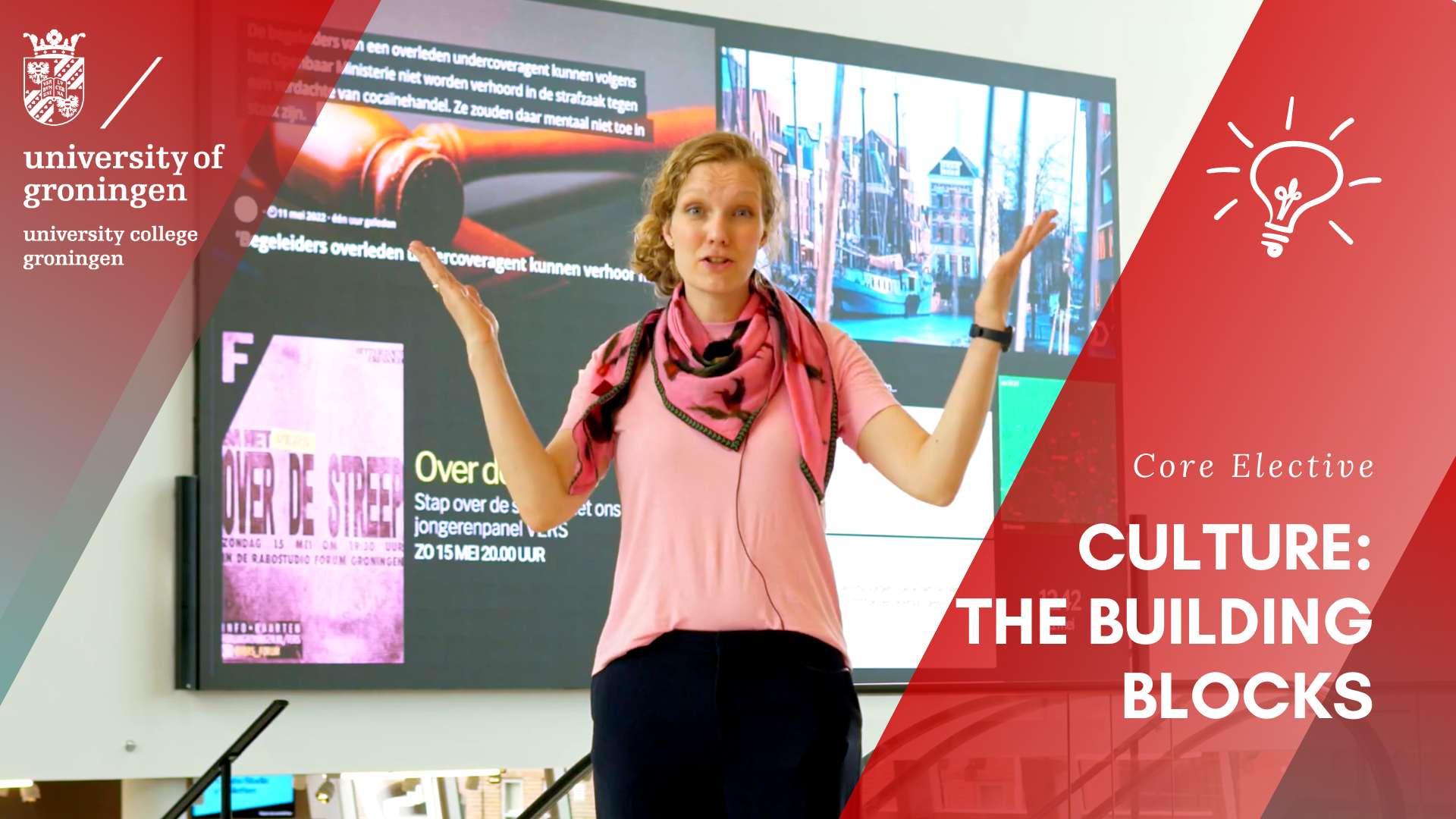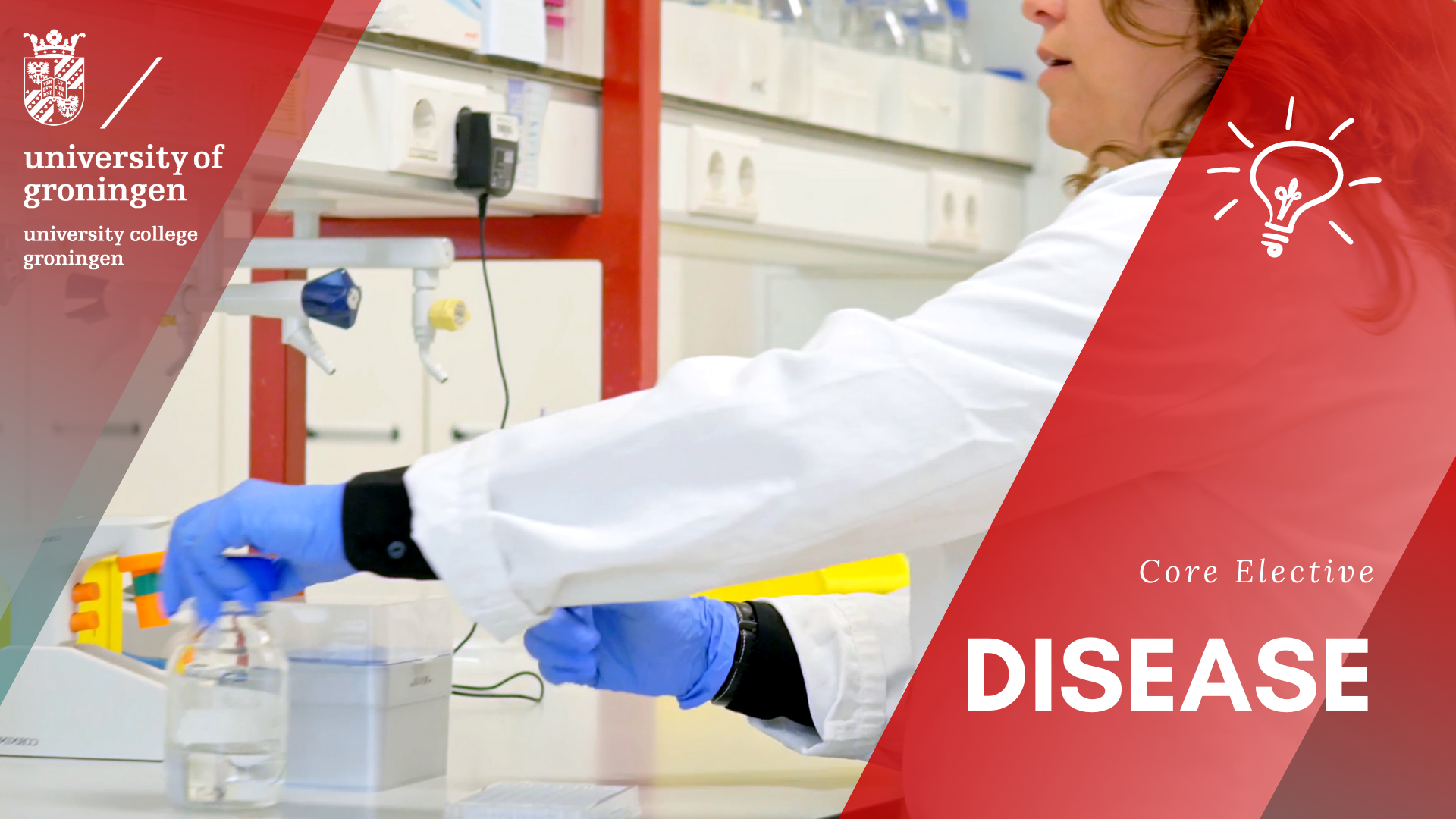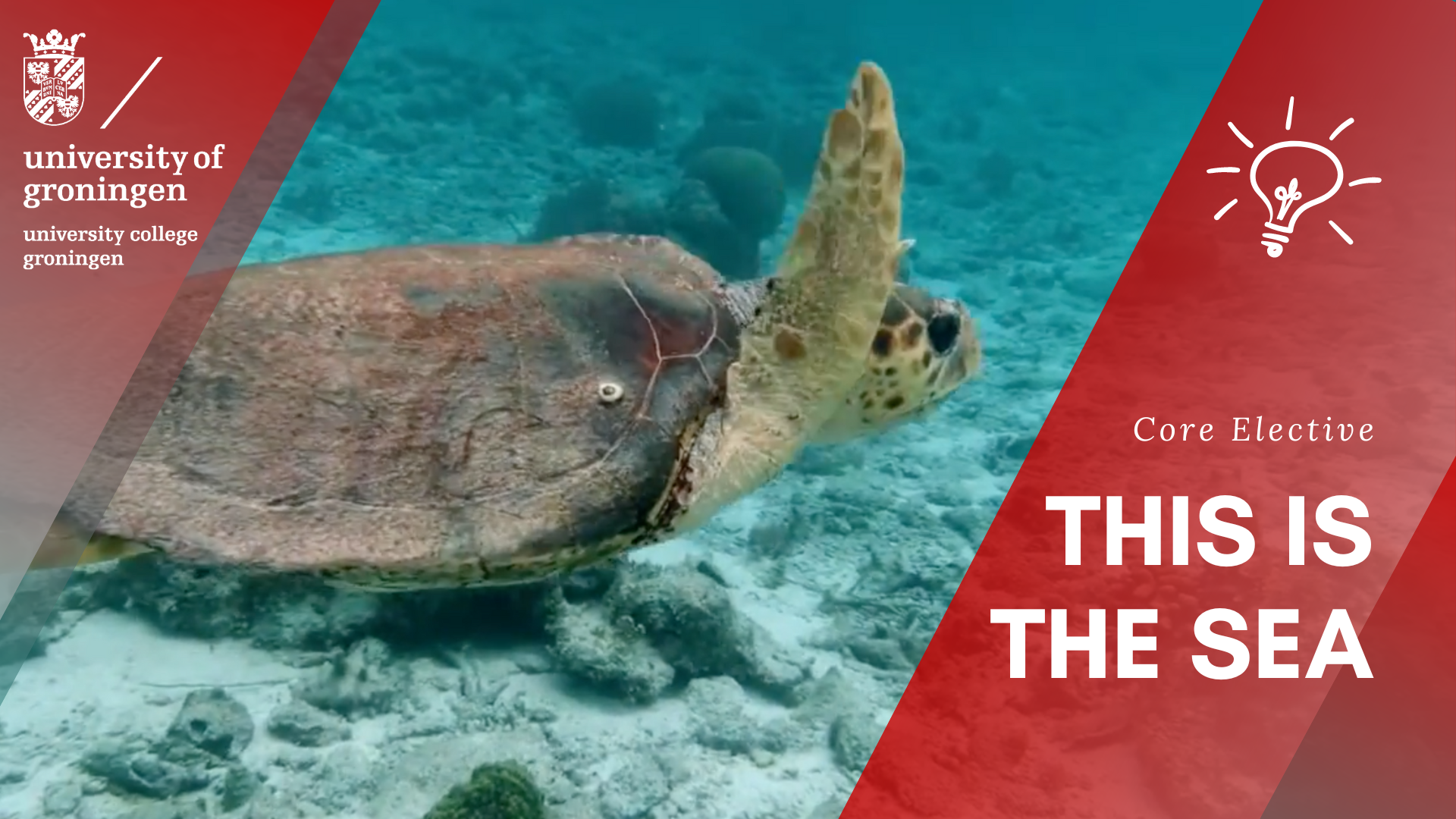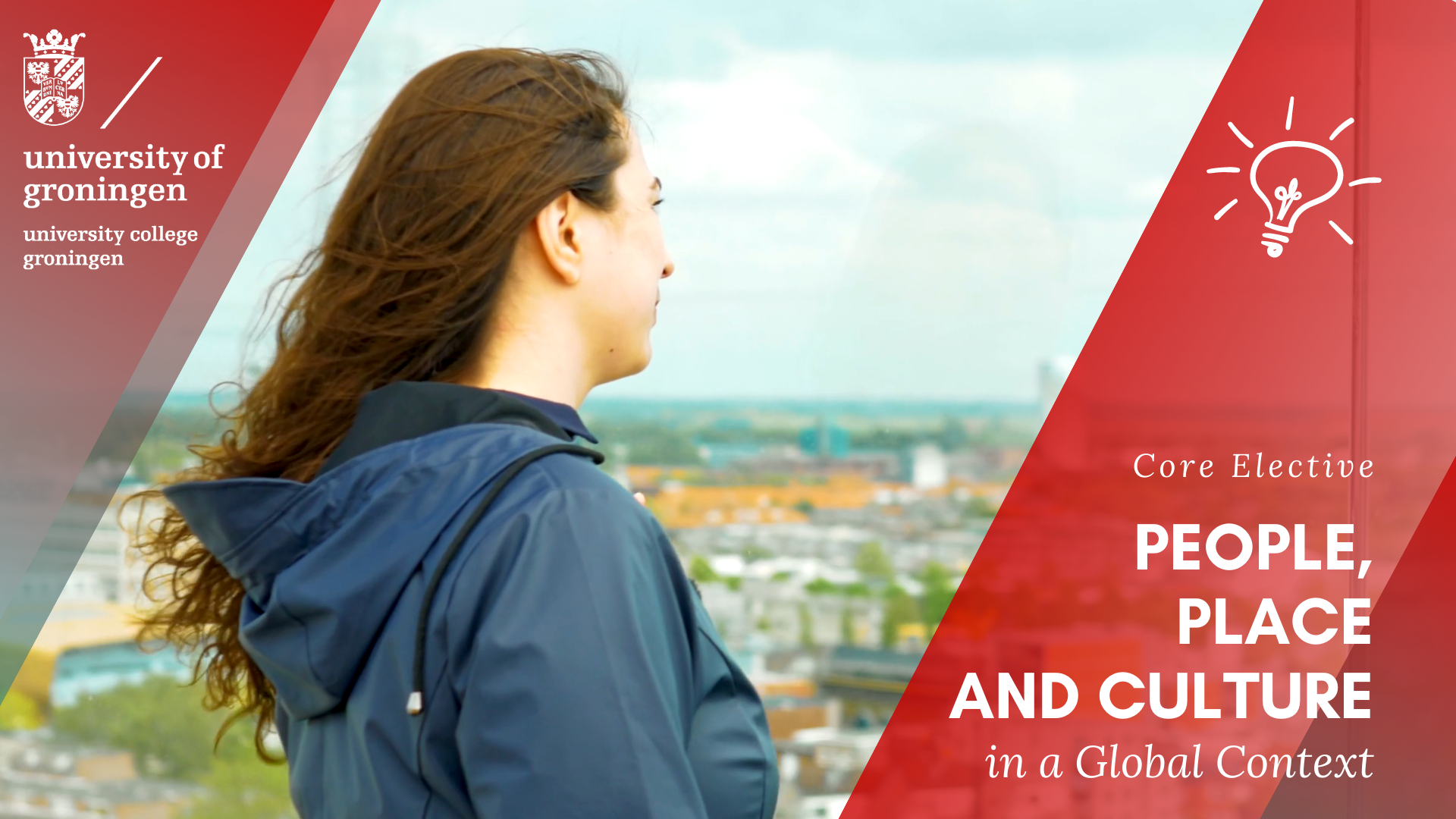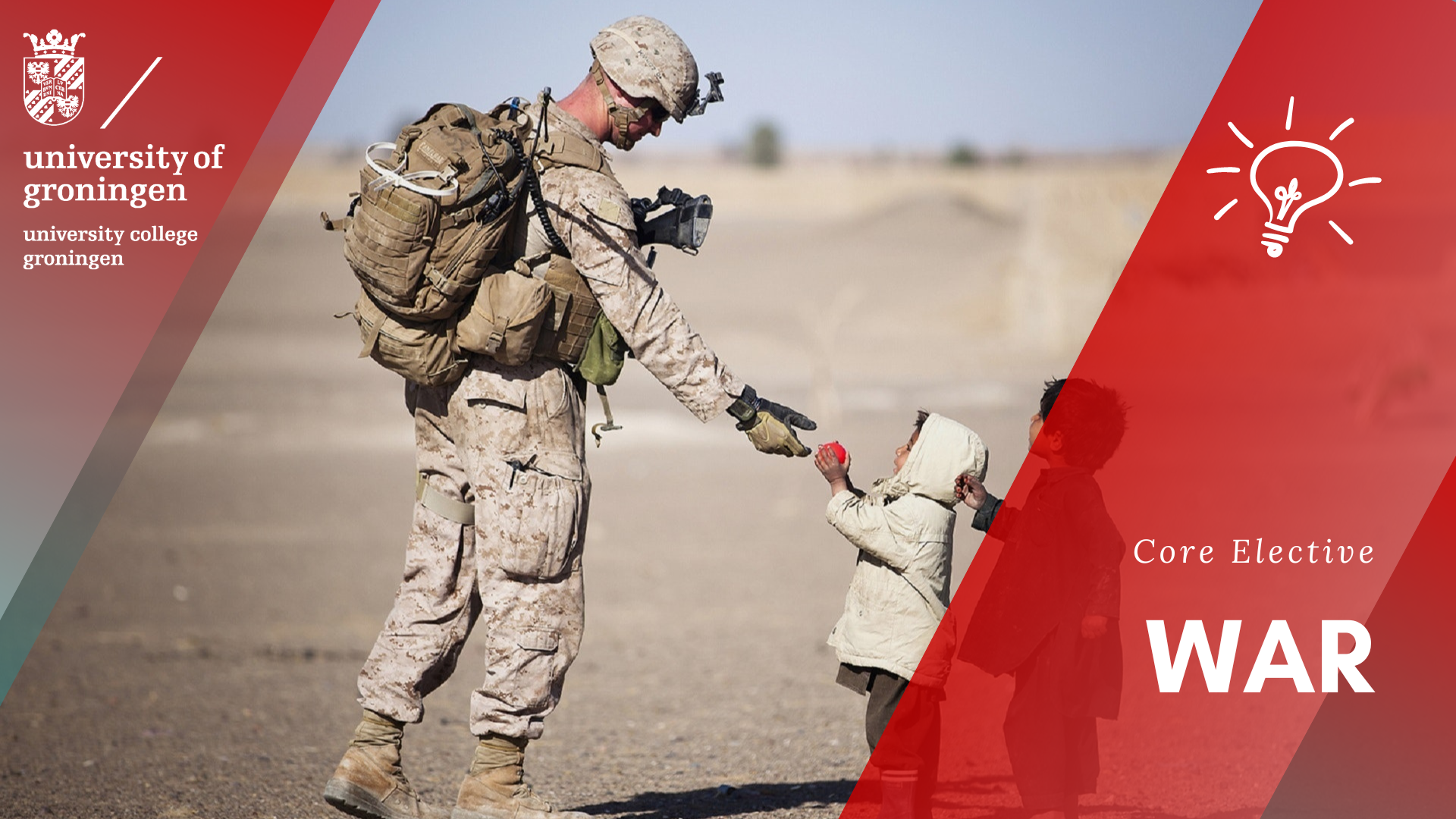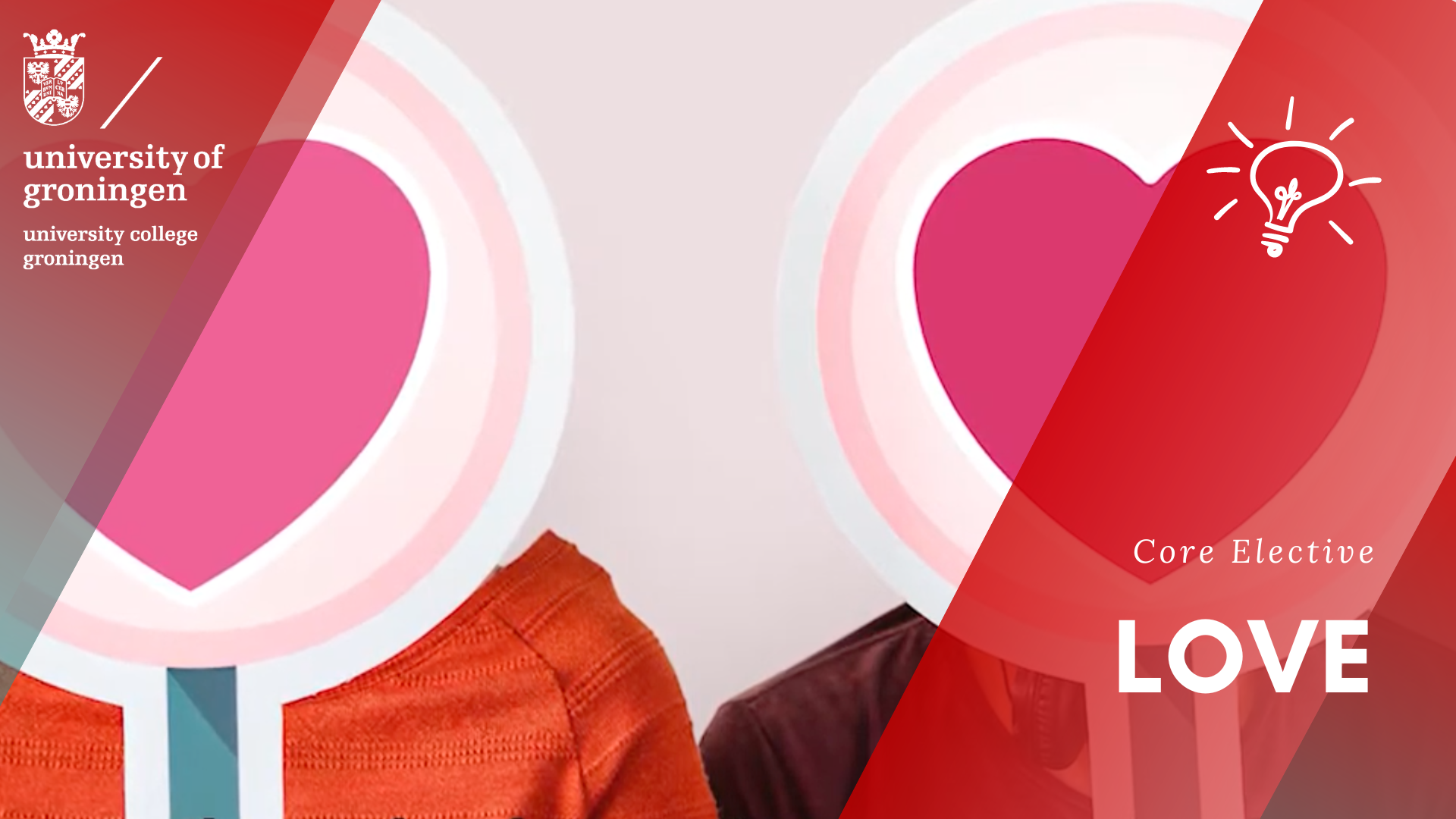Student for a Day

Get a feel for our Liberal Arts and Sciences programme by becoming a Student for a Day. As a Student for a Day you will be paired with a UCG student who will take you to a class and give you a tour of the UCG campus. You have the opportunity to chat with our lecturers and students to get the complete picture and discover if UCG is the right fit for you!
After you register via the form above, the coordinator will reach out to schedule your visit! You can reach out with questions about Student for a Day via: ucg@rug.nl.
Core Electives at UCG
UCG gives you the opportunity to explore a broad range of subject areas via different Liberal Arts and Sciences (LAS) core electives. If you would like to attend one of these classes, please let us know in the Student for a Day sign up form!
Culture: the Building Blocks
This course offers an introduction into the basic elements of human culture, including the distinguishing features of human culture and the evolution and development of cultural behaviour in humans. Topics discussed include imagination, artifacts, language, and cultural consciousness.
Lecturer: dr. Theisje van Dorsten
Disease
In your daily life you will be confronted with major health problems of our time, either in your direct environment or via news media. The course will address a number of compelling questions (such as “what factors contribute to health and disease?”; “Is there a relation between human evolution and cancer?”; and “what are the biggest threats to our health nowadays?”) using different perspectives. Besides analyzing the most important biological mechanisms related to a “healthy status” and behind major health issues, we are also going to discuss health and disease from a population health perspective as well as from an evolutionary point of view. All under the light of scientific evidence, of course.
Lecturer: dr. Adriana Mattos
This is the Sea
The ocean covers more than 70% of earth's surface and is a fundamental reason why life exists on earth – but much of it remains unexplored and under-appreciated. This course offers an interdisciplinary approach to understanding cultural and scientific aspects of the sea. Students will understand the role of the sea in climate change and they will learn how to protect the ocean and the planet. Topics discussed include cultural history of the sea, life in the ocean, politics of the sea, blue economy, ocean policy and economics.
Lecturers: dr. Oksana Kavatsyuk and dr. Laura Kapinga
People, Places and Culture in a Global Context
The course introduces thinking “geographically”: understanding, interpreting, and representing the human world in ways that emphasize spatial relations, spatial processes, and relationships to the physical space around us. By the end of the course, students will be able to think critically about and explain some ways that “geography matters” in terms of the dynamic flows of international relations, cultures, politics and economies and the people and institutions involved. The course promotes the development of a geographical imagination capable of addressing global, national, regional and local challenges.
Lecturer: dr. Bettina van Hoven and dr. Angelica Caiza Villegas
War
This course explores war from multiple perspectives. We are concerned with how it is defined, its nature and prevalence, as well as different types of warfare. We examine how law attempts to regulate warfare and explore how the dynamics of wars result in war crimes, crimes against humanity and genocide. Probing deeper into the nature of these crimes, we study both the cause (for instance the extreme methods of military training that turn recruits into torturers) and the effect (on victims).
We will also study methods to fight these types of crimes and the legal obligation of the international community to do so even when political will might be lacking as well as consider the after-effects of war. A special focus is placed on the Islamic State and the link between extremism, war and terrorism.
Lecturer: prof. dr. Alette Smeulers
Love
The concept of "love" is found in all cultures and is expressed in music, poetry, films, advertisements, mobile applications and many other human activities, products and customs. Love is also portrayed as one of the strongest feelings one can experience. But, what is Love? In this interdisciplinary course, Philosophy, Biology and Psychology are combined to achieve a nuanced understanding of what Love is and how it is experienced and expressed by humans. We address questions such as: Are there different types of love?; Is love an act of free will?; Do we choose who to fall in love with? and Can love hurt? We treat these as complex questions that would benefit from a conversation across disciplines.
Lecturers: dr. Rodrigo Gonzalez Alvarez , dr. Martijn Boot and dr. Angelica Caiza Villegas
Please note: the programme is subject to change. These Core Electives are offered in the current academic year.
| Last modified: | 20 December 2024 09.37 a.m. |

